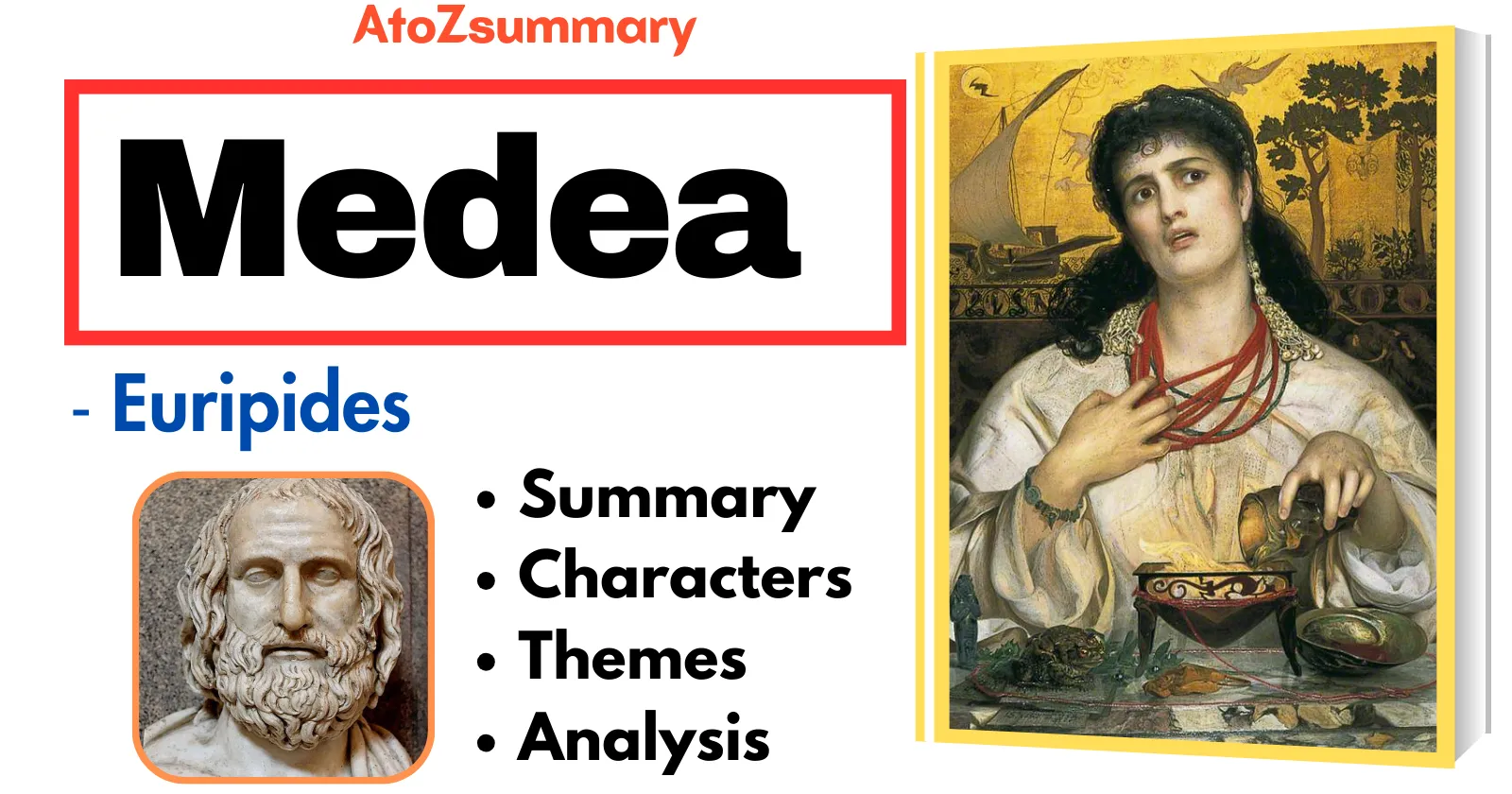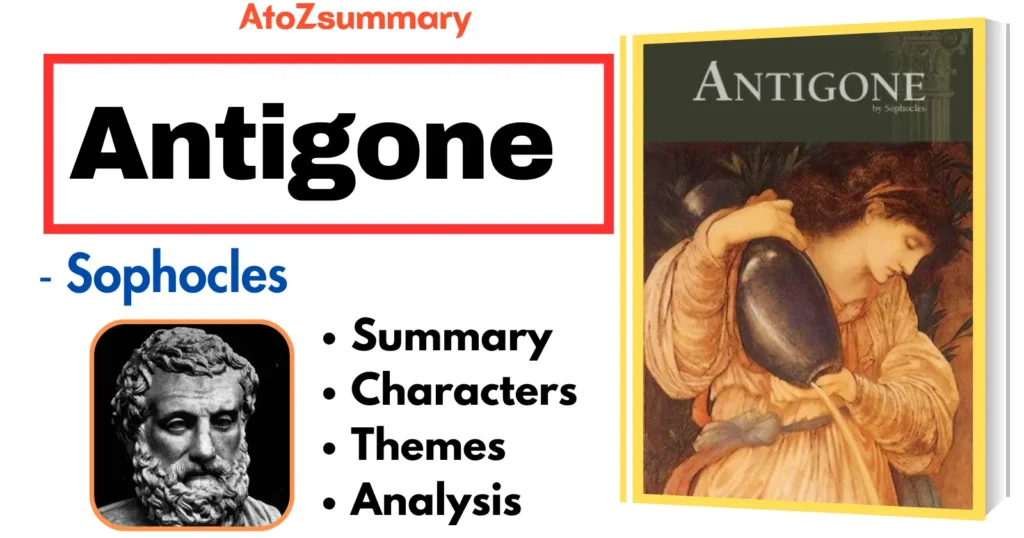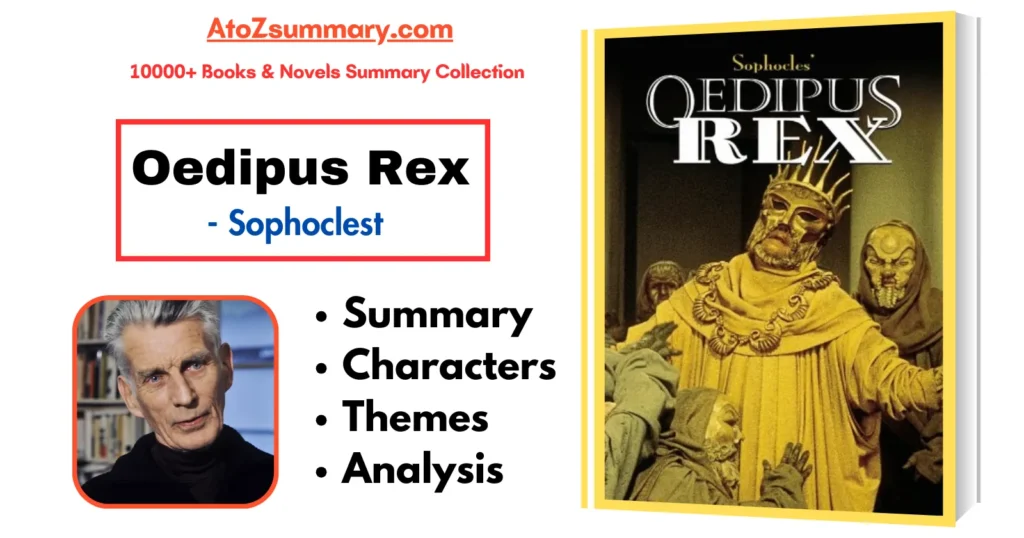About the Play: Medea
| Title | Medea |
|---|---|
| Playwright | Euripides |
| Genre | Tragedy |
| Setting | Corinth, Greece |
| Time Period | Ancient Greece (5th century BCE) |
| Themes | Revenge, Betrayal, Jealousy, Power, The destructive nature of passion |
| Key Characters | Medea, Jason, Creon, Glauce, Aegeus, Chorus of Corinthian Women |
| Major Conflicts | Medea’s desire for revenge against Jason, Medea’s internal conflict between love and hate, Medea’s clash with Creon and Glauce |
| Critical Reception | Considered one of Euripides’ greatest tragedies |
| Style | Euripides’ plays are known for psychological complexity, questioning traditional norms, and sympathetic portrayal of women. |
| Significance | Explores the complexities of human emotion and the devastating consequences of uncontrolled passion |
Analysis: Medea
“Medea” by Euripides is a Greek tragedy that tells the story of a woman named Medea who is betrayed by her husband, Jason. Medea seeks revenge and commits horrifying acts, including killing her own children, to punish Jason for his betrayal.
The play raises questions about the limits of revenge and the destructive power of intense emotions. Medea’s character challenges traditional gender roles and portrays the complexity of human nature.
Overall, “Medea” is a gripping and thought-provoking play that dives into the darker aspects of the human psyche.
Characters: Medea
The characters of “Medea ” by Euripides are:
- Medea: A powerful and passionate woman who is deeply in love with Jason. However, when Jason betrays her, she becomes vengeful and plots a gruesome revenge.
- Jason: A heroic figure who betrays Medea by leaving her for another woman. He is driven by ambition and political gain, leading to tragic consequences.
- Creon: The king of Corinth, Creon plays a significant role in the play. He represents the societal norms and pressures that Medea rebels against.
- Chorus: A group of Corinthian women who serve as a collective voice, expressing opinions and emotions throughout the play. They provide insight into the impact of Medea’s actions on society.
- Children: Medea and Jason’s two sons. They become unintended victims of Medea’s revenge, highlighting the tragic consequences of her actions.
Themes: Medea
The themes of “Medea ” by Euripides are:
- Betrayal and Revenge: Medea feels betrayed by her husband, Jason, and seeks revenge for his disloyalty.
- Conflict between Duty and Emotion: The play explores the tension between Medea’s duty as a mother and her intense emotions, leading to drastic consequences.
- Power of Women: Medea challenges traditional gender roles, showcasing the power and strength of women in the face of adversity.
- Fate and Free Will: The characters grapple with the predetermined fate and the choices they make, highlighting the interplay between destiny and personal decisions.
- Exile and Alienation: Medea’s status as a foreigner contributes to her isolation and desperation, shedding light on the theme of exile and its impact.
- Human Weakness: The play reveals the flaws and weaknesses inherent in human nature, as characters succumb to their desires and make morally questionable decisions.
Watch Full Video Summary of “Medea”
Medea Summary
Act 1: Betrayal and Exile
The play opens in the city of Corinth, where Medea, a former princess of Colchis, has been living in exile with her husband, Jason. They met when Jason sought the Golden Fleece, and Medea, a skilled sorceress, aided him in his quest. However, now that they have settled in Corinth, Jason decides to marry the princess of Corinth, Glauce, for political advantages.
Medea, abandoned by her husband, is consumed by grief and rage. The chorus, a group of Corinthian women, empathizes with her pain. Medea, alone on stage, reveals her inner turmoil, expressing the depth of her love for Jason and the betrayal she feels. She contemplates suicide but decides that revenge is a more fitting response.
Act 1 sets the stage for the unfolding tragedy, establishing Medea as a scorned and vengeful woman, wronged by her husband’s betrayal.
Act 2: Machinations and Murders
In this act, Medea hatches a cunning plan to exact revenge on Jason and his new bride. She approaches Jason, feigning reconciliation and claiming to accept his decision. Medea convinces Jason to allow their two children to deliver a gift to the bride, a beautiful robe and a golden crown.
Unknown to Jason, Medea has laced the gifts with a deadly poison. The tension builds as the audience is torn between sympathy for Medea’s pain and horror at the impending tragedy. Medea’s conflicted emotions are evident as she grapples with the morality of her actions.
The chorus, representing the women of Corinth, wavers between supporting Medea’s quest for justice and condemning the violence she plans to unleash. This act explores the complexity of human emotions, morality, and the consequences of betrayal.
As the children innocently carry the poisoned gifts to Glauce, the audience is left in suspense, knowing that Medea’s revenge is about to unfold.
Act 3: Tragedy Unleashed
The final act is a culmination of the escalating tension and the tragic consequences of Medea’s revenge plot. News of the deaths reaches the chorus, and a horrified Jason rushes to the scene. The chorus, now torn between pity for the children and understanding Medea’s pain, reflects the emotional turmoil of the audience.
Medea appears on stage, triumphant and unrepentant. She justifies her actions, arguing that Jason’s betrayal left her with no other recourse. The play grapples with the consequences of seeking revenge and the price one pays for letting anger and hatred consume the soul.
As Jason mourns the loss of his children, Medea intensifies the emotional impact by revealing her plans to escape. She plans to seek refuge with Aegeus, the king of Athens, leaving Jason to suffer the consequences of his choices.
The play concludes with Medea’s departure, leaving behind a devastated Jason and a chorus grappling with the moral ambiguity of the events that unfolded.
Conclusion
“Medea” is a timeless tragedy that explores the complexities of human emotions, the consequences of betrayal, and the destructive power of revenge. Euripides delves into the psyche of a woman scorned, challenging the audience to empathize with Medea’s pain while condemning the violence she perpetrates.
The play raises profound questions about justice, morality, and the thin line between love and hatred. Medea’s character is both sympathetic and terrifying, making the audience question their own capacity for darkness in the face of betrayal.
As the curtain falls on the tragedy of “Medea,” the audience is left with a haunting reflection on the human condition, the fragility of relationships, and the devastating impact of unchecked emotions. Euripides masterfully weaves a tale that resonates across centuries, reminding us of the enduring power of Greek tragedy to explore the depths of the human soul.
FAQs
What is the story of the Medea?
Medea, scorned by her husband Jason, takes revenge by murdering his new bride and their children, forever scarring Jason’s soul.
What is Medea known for?
Medea is known for her vengeful act of killing her own children to punish her unfaithful husband.
Why is Medea a tragedy?
Medea is a tragedy because it portrays the downfall of a noble woman driven to commit horrific acts of revenge due to betrayal and desperation.
What is Medea guilty of?
Medea is guilty of the murders of Creon, Glauce, and her own two children.
What was Medea the goddess of?
Medea is not a goddess but a sorceress and priestess of the goddess Hecate in Greek mythology.
Why was Medea cursed?
Medea was cursed for her betrayal and murderous actions, including the killing of her brother, her husband’s new wife, and their children.
What evil things did Medea do?
Consumed by revenge, Medea commits the ultimate act of evil by killing her own children.
Does Medea regret killing her sons?
Medea’s complex motivations and the tragic consequences of her actions make it difficult to definitively say whether she regrets killing her sons, but her final words suggest a deep sense of remorse and acceptance of the path she has chosen.
What happened to Medea in the end?
Medea kills her children to take revenge on her husband, Jason, and then escapes in a dragon-drawn chariot given to her by the Sun god.




![Anything But Typical Summary, Themes & Characters [Nora Raleigh Baskin] Anything But Typical Summary, Themes & Characters [Nora Raleigh Baskin]](https://atozsummary.com/wp-content/uploads/2023/05/Anything-But-Typical-Summary-Themes-Characters-Nora-Raleigh-Baskin.webp)






